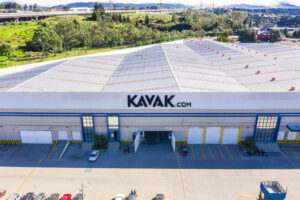
Por Sandra Pérez
March 10, 2022
It all started in Bogotá, Colombia, more than five years ago, when Felipe Villamarín, Sebastián Mejía and Simón Borrero created Rappi as a delivery solution.
Home delivery services already existed, but Rappi capitalized on the use of bicycles. In Latin America this is a common mode of transportation to combat traffic and achieve faster deliveries.
The startup began by delivering food, groceries, medicine and practically anything else. Now, the company has established itself as a super app; it covers different business verticals in almost all of the 9 countries in which it operates.
The company’s offerings include RappiMall (its e-commerce solution), RappiFavor (messaging), RappiAntojo (purchase products in any store), RappiMobility (mobility options), RappiEntertainment (games, music, events, and more) and Rappi Travel (travel).
Since its inception, Rappi has attracted the attention of the largest investors in the region. For example, DST Global led a US$220 million investment round in 2018.
Softbank also injected US$1 billion of capital into Rappi in 2019. This was one of the largest investments the fund has made in the region, and with it Rappi actually attracted even more attention from investors around the world. Other highly visible funds including Delivery Hero, Y Combinator, Investo, Sequoia Capital and – most recently – T. Rowe Price have led the company’s various rounds.
So far, Rappi is funded to the tune of US$2.2 billion, is a unicorn valued at US$5.25 billion and is expected to go public soon.
All the milestones that Rappi has achieved have not only represented a breakthrough for itself. Its success has also given rise to a new generation of founders who, thanks to the hands-on learning they had as employees or investors of a fast-growing company like Rappi, decided to start their own companies with the blessing and guidance of the Colombian company.
This phenomenon known as the multiplier effect is common in the world of entrepreneurship. Perhaps the most famous “mafia” is that of PayPal; some of its most famous founders and employees, such as Peter Thiel, Reid Hoffman and Elon Musk, founded companies such as Palantir, Tesla and LinkedIn when they left the payment company.
In the case of Latin America, something similar happened earlier with Linio. Several former Nubank employees and investors have also created their own companies or invested in others.
However, Rappi leads the way. ALLVP, a Mexican venture capital fund, estimates that former employees or investors of the Colombian startup have consolidated a younger “mafia” that already has more than 60 companies.
Here, we highlight some of them:
In addition to being founders, many of Rappi’s employees, including the founders of Rappi itself, are investors in companies such as Sumer, Jokr, HelloGuru, Frubana and other startups that former Rappi employees have founded.
You may also be interested in: The 10 Latin American Startups That Are Y Combinator Top Companies

Por Yanin Alfaro
February 17, 2026

Por Israel Pantaleón
February 17, 2026

Por Stiven Cartagena
February 13, 2026